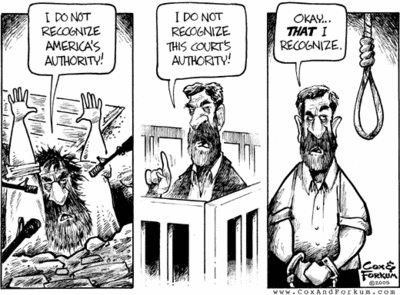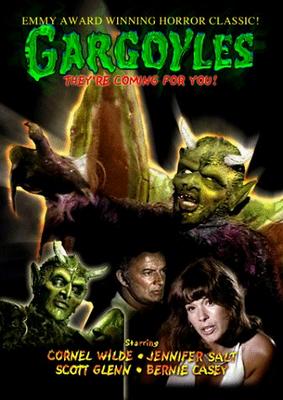
THE BEST INVENTION: Umberto Eco shows how after 1000 AD the cultivation of beans, peas and lentils had a profound effect on European civilisation
A thousand years ago we were squarely in the middle ages. Of course, "Middle Ages" is a scholastic convention. For example, in certain countries -- including Italy -- the term "Middle Ages" is employed even when the writer is referring to the time of Dante and Petrarch; in other countries, scholars already speak of these years as the Renaissance. To make things a bit clearer, let us say that there are at least two "Middle Ages": one lasting from the fall of the Roman Empire (fifth century A.D.) to the year 999, and the other, beginning in the year 1000 and continuing at least until the 15th century.
Now the Middle Ages before the year 1000 can deservedly be called the Dark Ages, a term carelessly used to cover all the centuries between the 5th and the 14th. I say "deservedly" not because those Ages were full of burnings at the stake, for there were flames and pyres also in the highly civil 17th and 18th centuries, or because superstitious beliefs were widespread, for when it comes to superstitions -- though for different reasons -- our own New Age is second to none.
No, they can deservedly be called the Dark Ages because the barbarian invasions that took place during this time beset Europe for centuries and gradually destroyed Roman civilization. Cities were deserted, in ruins; the great highways, neglected, disappeared under a tangle of weeds; and fundamental techniques were forgotten, including the processes of mining and quarrying. The land was no longer cultivated and, at least until the feudal reform of Charlemagne, entire agricultural areas reverted to forest.
In this sense, the Middle Ages before 1000 AD were a period of indigence, hunger, insecurity. In his splendid La civilisation de l'Occident mediaevale, rich in observations of everyday life in the Middle Ages, Jacques Le Goff illustrated how impoverished this time was by recounting popular tales. In one such story, a saint appears magically to retrieve a sickle that a peasant had accidentally dropped down a well. In an era when iron had become rare, the loss of a sickle would have been a terrible thing, making it impossible for the peasant to continue harvesting: the sickle's blade was irreplaceable.
As the population became smaller and less strong physically, people were mowed down by endemic diseases (tuberculosis, leprosy, ulcers, eczema, tumours) and by dread epidemics like the plague. It is always risky to venture demographic calculations for past millennia, but according to some scholars, Europe in the seventh century had shrunk to roughly 14 million inhabitants; others posit 17 million for the eighth century. Underpopulation combined with undercultivated land left nearly everyone undernourished.
As the second millennium approached, however, the figures changed -- the population grew. Some experts calculate a total of 22 million Europeans in 950; others speak of 42 million in 1000. In the 14th century, Europe's population hovered between 60 million and 70 million. Though the figures differ, on one point there is agreement: in the five centuries after the year 1000, Europe's population doubled, maybe even tripled.
The reasons for Europe's boom are hard to pinpoint; between the 11th and 13th centuries, radical transformations occurred in political life, in art, in the economy and, as we shall see, in technology. This new surge of physical energy and of ideas was evident to those living at the time. The monk Radulphus Glaber, born in the very last years of the first millennium, began writing his famous Historiarum (known in English as "Five Books of the Histories") about 30 years later. The monk did not have a particularly merry view of life, and he tells of a famine in 1033, describing atrocious instances of cannibalism among the poorest peasants. But somehow he sensed that, with the year 1000, a new spirit was stirring in the world, and things -- which until then had gone very badly -- were taking a positive turn.
Thus he burst forth in an almost lyrical passage, which still stands out in the annals of the Middle Ages. In it, he told how, at the end of the millennium, the earth suddenly blossomed, like a meadow in spring: "It was already the third year after 1000, when, in the whole world, but especially in Italy and the regions of Gaul, there was a renewal of the basilical churches . . . each Christian nation strove to achieve the most beautiful. It seemed that the very earth, stirring itself and shaking off old age, was newly clad with a white mantle of churches." Now the flowering of Romanesque art (for that is what Radulphus was talking about) did not suddenly take place in 1003; Radulphus was writing more as a poet than as an historian. But he was talking about a rivalry of power and prestige among various city-states; he was talking about new architectural techniques and of an economic resurgence, for you cannot build such churches without wealth behind you; he was talking about churches conceived in dimensions larger than their predecessors -- churches capable of accommodating a growing population.
Naturally it can be said that, with the reforms of Charlemagne, with the construction of the Germanic empire, with the rejuvenation of cities and the birth of the communes, the economic situation also improved. But would it not also be possible to say the opposite, namely that the political situation evolved, the cities flourished anew, because daily life and working conditions were improved by something? In the centuries before 1000, a new triennial system of crop rotation was slowly adopted, allowing the land to be more fruitful.
But cultivation requires tools and working animals, and on this front there were breakthroughs too. Just before the year 1000, horses began to be fitted with iron horseshoes (up until then, the hooves were bound with cloth) and with stirrups. The latter, of course, were more for the benefit of knights than for peasants. For the peasants, it was the invention of a new kind of collar for horses, oxen and other beasts of burden that proved revolutionary. The old collars put all the strain on the animal's neck muscles, compromising its windpipe.
The new collar involved the chest muscles, increasing the animal's efficiency by at least two-thirds, and permitting, for certain tasks, horses to replace oxen (oxen were better suited to the old type of collars, but they also worked at a slower pace than horses). Moreover, whereas in the past horses had been yoked in a horizontal line, now they could be yoked in single file, significantly increasing their capacity for pulling.
Around this time, ploughing methods changed. Now the plough had two wheels and two blades, one for cutting the earth and the other -- the ploughshare -- for turning it over. Though this "machine" was already known to Nordic people as early as the second century BC, it was not until the 12th century that it spread throughout Europe.
But what I really want to talk about is beans, and not just beans but also peas and lentils. All these fruits of the earth are rich in vegetable proteins, as anyone who goes on a low-meat diet knows, for the nutritionist will be sure to insist that a nice dish of lentils or split peas has the nutritional value of a thick, juicy steak. Now the poor, in those remote Middle Ages, did not eat meat, unless they managed to raise a few chickens or engaged in poaching (the game of the forest was the property of the lords). And as I mentioned earlier, this poor diet begat a population that was ill nourished, thin, sickly, short and incapable of tending the fields.
So when, in the 10th century, the cultivation of legumes began to spread, it had a profound effect on Europe. Working people were able to eat more protein; as a result, they became more robust, lived longer, created more children and repopulated a continent. We believe that the inventions and the discoveries that have changed our lives depend on complex machines. But the fact is, we are still here -- I mean we Europeans, but also those descendants of the Pilgrim Fathers and the Spanish conquistadors -- because of beans. Without beans, the European population would not have doubled within a few centuries, today we would not number in the hundreds of millions and some of us, including even readers of this article, would not exist. Some philosophers say that this would be better, but I am not sure everyone agrees.
And what about the non-Europeans? I am unfamiliar with the history of beans on other continents, but surely even without European beans, the history of those continents would have been different, just as the commercial history of Europe would have been different without Chinese silk and Indian spices.
Above all, it seems to me that this story of beans is of some significance for us today. In the first place, it tells us that ecological problems must be taken seriously. Secondly, we have all known for a long time that if the West ate unmilled brown rice, husks and all (delicious, by the way), we would consume less food, and better food. But who thinks of such things? Everyone will say that the greatest invention of the millennium is television or the microchip. But it would be a good thing if we learned to learn something from the Dark Ages too.
http://www.themodernword.com/eco/eco_intro.html
 I asked my friend Bill to recommend some books to me as he is particularly well read and has made some winning suggestions in the past. A bit about Bill. An erstwhile bon vivant, USA veteran, bibliophile and barfly, he left Connecticut several years ago for the big city and has lived there in Iowa ever since.
I asked my friend Bill to recommend some books to me as he is particularly well read and has made some winning suggestions in the past. A bit about Bill. An erstwhile bon vivant, USA veteran, bibliophile and barfly, he left Connecticut several years ago for the big city and has lived there in Iowa ever since.
























